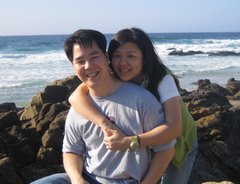It is the end of the year, and a quiet moment during the long nights often invite self-examination and critique.
We look inward to find answers to questions that remain unspoken behind the tasks of our lives. While the days fly by, we focus our minds on that which we must do in order to make it to the next day in better shape. But every now and then, a silent interlude slips in between the chaotic needs of our lives. In such a moment, we can close our eyes and think on the things that rarely make the dialogue of our minds. For those like myself, the question that most often pushes to the front is, "How did I end up the way that I am?"
In the world of law, there is an important idea that permeates the societal structure that binds individuals together collectively in this world. There may not be a more important idea in law; first year law students get drilled on this from day 1: proximate cause.
What is proximate cause?
Well, it is difficult to define without examples, but perhaps the easiest way to understand it is to think in these terms: is the effect of action or inaction a result of a reasonable person's decision to act or not to act? This is a melding of direct cause and effect, and a culpability factor that resides in every reasonable person. When someone asks, "are you responsible?" what would your answer be?
The question is loaded, of course. It is hard enough to define "responsible," much less determine whether one is, in fact, responsible. But it is doable, and we must face ourselves at some point. We must face ourselves, let me add, before we face God.
So, preliminaries aside, let me answer my own question.
I am responsible for my condition of being, and I got here, the way that I am, because of the choices that I made and did not make.
Oh, the burden on my soul. For all the victories and the successes I have enjoyed, for all the people that I have helped, for all the incremental benefit that others have derived from my existence, for all the joy I have been a part of, I am also a flawed creature. I have been the cause of great harm, capable of even greater harm, and I continue to exist in a flawed state.
Let us, for a moment, indulge in the proverbial American dream. Why? Well, this is the reality of the life that I am in. A second generation Korean-American, I have pushed my entire life to achieve the dream that had been laid out before me since before I could remember. So let us say that I have everything that I could ever hope to have, possessions, family, friends, financial security, societal stature, and that I am a positive force for the environment around me. In such a state, would I not feel as though my life has been an overwhelming success?
Projection and extrapolation into such a reality, and I think I am still unsure about everything. How can it be otherwise?
I did not ask to be born, I did not ask to be put into this body or with this mind that never ceases to search for answers in the gloom of night. And yet, I cannot help but think that none of these things mean anything without a more complete understanding of what is Right and what is Wrong.
My understanding of Right and Wrong comes from the Bible, and the belief in a Creator that defines all existence in binary. With God, we are in the Right. Without, we are in the Wrong.
And in these terms, I see some unsettling truths.
I am selfish. I am self-centered. I am less than honest. I am self-indulgent, shallow and prejudiced against all others. I am the robber who comes at night, and I am the murderer who shatters families without thought. I am all these things, and the American Dream is ground into dust and blown away against the Reality set, not by me, but by a Creator that cannot compromise Reality to save a troubled soul.
It is easy (easy! he says!) for a Christian to respond, "well, thank God we have a Savior who has sacrificed His life to save our own." But too often this kind of thinking merely whitewashes what is, really, an all-together ugly soul.
Grace is a difficult concept to wrap one's mind around. Grace says, "I forgive." The recipient of Grace can then go about his or her routine, prone once again to fail. But nowhere does Grace say, "I forget." That is our own province, and likely to be the proximate cause of much of the suffering in the world.
But here's the rub - my mind does not forget. In fact, and what is rather ironic, is that I have a poor memory for many things. I have a poor memory for people's names, for what people verbally say, for directions and even for words. But the one thing that I do not have a poor memory for, is for when I do wrong. Then I do remember.
And even so, even with my near-perfect recall for my own faults and errors, I do not necessarily change for the better.
And that, is what I face tonight. My reassessment is this:
Of all the things that I wish I could change about my life, the one thing that I wish more than anything else is that I would become a better person. It isn't like I am asking to be made Perfect, but Better.
-David
Friday, December 22, 2006
Subscribe to:
Post Comments (Atom)

No comments:
Post a Comment